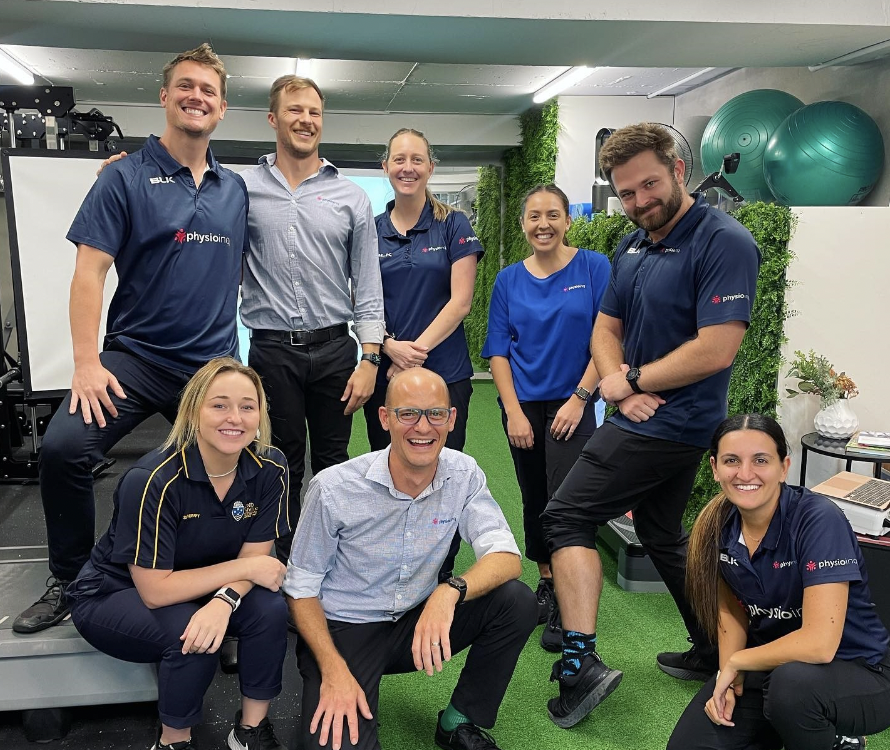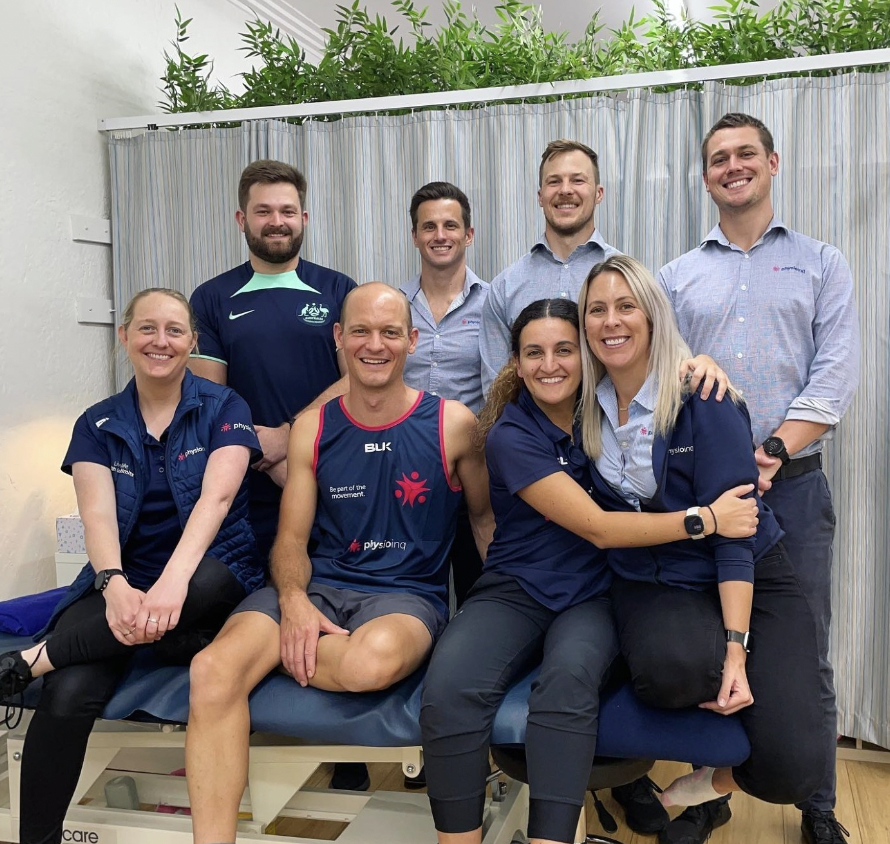What’s It Like Being A Physio?
Sunday, April 30, 2023
Today we will ask our Physiotherapists, ranging from new graduates to experienced Senior Physiotherapists, some of the common questions asked by work experience or university placement students considering work as a Physiotherapist in private practice.
What’s it like to work as a physiotherapist in private practice?
“It’s a very rewarding, yet challenging job.”
“Working as a physio is awesome! You help people get back to activities they love, and you have the perfect mix of hands-on practical work, paperwork, education and good banter.”
“It’s a demanding job and kind of like problem solving constantly to work out the best treatment program for each person because no presentation is ever the same. It can be physically demanding as well with the variety of assessment and treatment techniques we use with each patient. Assessing the leg strength of a big rugby player takes a lot of effort!”
“You never stop learning.”
“I love working with people and empowering them to improve their health. Working in a private practice setting each day is very unique, you rarely see the same thing in one day. Some days can be more challenging and physically demanding than others, however you also never stop learning and developing clinical reasoning skills.”
“I believe we have the best job ever! We get to constantly meet new people and to talk to people every day. We may have met people at the start of their rehab journey when they are in lots of pain and find it hard to complete everyday tasks and we can get them back to doing things they didn’t know they were capable of. It is such an awesome feeling knowing you have helped change someone’s life for the better!”
“To be honest, it’s been even better than I ever expected.”

What does a typical day as a physiotherapist in private practice look like?
“Usually it starts with some preparation time - looking at the case load for the day and making sure our treating area is clean and has everything we need ready for consultations.”
“Usually it starts with checking over any new patient’s information and then going through the day seeing patients and treating them in various ways.”
“A typical day involves seeing a wide variety of people with a range of musculoskeletal problems... We can see quite a few patients a day as well as talk to other health professionals to work together in the care of patients.”
“Each day can vary with treatment, sometimes you’d spend the whole day in the gym or other days conducting a lot of hands-on treatment.”
“Lots of talking, lots of coffee & lots of handwashing! When we find time between clients there is a lot of researching, reflecting & brainstorming that goes on.”
“In between seeing patients, we are checking emails, writing letters, checking in with patents. Throughout the day, when we have time, we are doing research to make sure we are up to date with the evidence, discussing cases with other practitioners or trying different hands-on techniques.
“Also, cleaning, stretching, and refuelling!”
“By the end of the day, it is important that all notes are up to date and any outstanding tasks that were meant to be completed for the day are done. No day is the same, which makes it fun and interesting.”
What is difficult about being a physiotherapist?
“Sometimes it’s hard to manage people’s expectations with conditions that take time to resolve and keep them motivated.”
“Probably the hardest thing is if you and your patient aren't seeing the outcomes you want from treatment or if progress is a bit slower.”
“The most challenging aspect I would have to say is when you are presented with a tricky case that isn’t clear cut and recovery takes longer than expected. Recovery is not always linear, and many people face ups and downs in their rehab journey, sometimes feeling worse before they get better.”
“Managing expectations. A lot of the time injuries and recovery takes longer than people expect and that can be challenging to explain.”
“Getting people to understand that injuries take time and hard work.”
“The most difficult part is probably realising that some people will just not get a “fix”.”
“Also, time management. Between getting a detailed update, assessing, treating & prescribing exercises we have to do notes, talk to GP’s, case managers & surgeons. And have lunch.”

What do you love the most about being a physiotherapist?
“I love being able to meet and talk and bond with so many different people (patients and physios)! I also love seeing the small or big wins with patients and seeing them get back to what they enjoy most.”
“It’s great to meet new people through your work and hear their stories.”
“Helping people! I love talking to people and forming relationships. I feel we are so lucky to be constantly meeting new people of different ages and backgrounds. I love taking people through their rehabilitation journeys to make positive changes to not only improve their injury but overall health.
“It is very rewarding to impact a client’s life. People come to you because they are in pain, stiff, generally struggling with life and we can work to return independence, return to their sport, get out of bed, or get through a day without a headache. It's ALWAYS a nice feeling when you make people better.”
“I love being able to work with a person and focus on what’s important to them. I also love that people trust physiotherapists, which makes me want to always get better at what I do.”
“It’s always lovely seeing our team members become more some of the very best therapists in our community.”
“The thing I like most about being a physiotherapist is being able to help people get back to doing the things that they really like, such as hanging out with the family, doing the gardening, competing in sport, or simply just be able to do the job without pain. I get so much satisfaction from helping people in our local community to live a good and fulfilling life – it is priceless.”
“What I want more than anything for my patients is to allow them to be their best self and live a life without limitations.”

